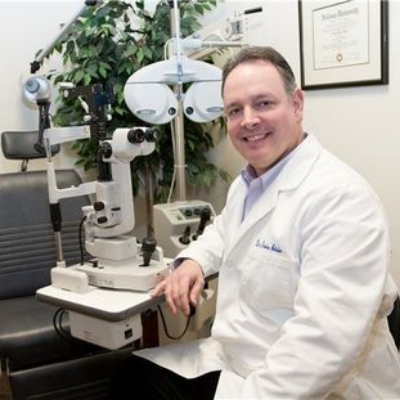Understanding the Comprehensive Function of an Optometrist in Modern Eye Care
With developments in technology and a raising emphasis on precautionary care, eye doctors are integral in detecting and handling chronic eye conditions, while likewise engaging in very early illness detection. How do these duties intersect with their role in advertising general eye health and wellness, and what does this mean for client end results in a collective health care environment?
Expanded Range of Practice
In recent years, the role of optometrists has progressed significantly, with many professionals currently accepting an expanded range of technique that prolongs beyond conventional eye examinations. Their duties currently include a vast range of services, including recommending medications for ocular conditions, handling persistent eye illness, and executing minor surgical procedures.
Further, eye doctors are now a lot more associated with joint treatment, functioning closely with ophthalmologists, medical care physicians, and other health care experts to ensure all natural individual care. This interprofessional partnership is important in managing complicated situations that need a multidisciplinary strategy. Additionally, optometrists are playing an essential duty in public health and wellness campaigns, such as vision screenings and eye wellness education and learning, targeted at boosting neighborhood health end results.
The expanded scope of method for optometrists not just enhances their capacity to provide extensive treatment yet additionally resolves the expanding need for obtainable and efficient eye treatment solutions, adding to general medical care enhancements.
Very Early Disease Discovery
Very early discovery of eye illness is progressively ending up being a centerpiece in the increased duty of optometrists. As primary eye care service providers, optometrists are uniquely positioned to determine early signs of ocular conditions such as glaucoma, macular deterioration, diabetic retinopathy, and cataracts. This critical role is critical, as early diagnosis can dramatically boost the management and prognosis of these conditions, possibly preventing vision loss and enhancing person results.
Optometrists employ detailed eye exams to detect refined changes in vision and eye health. These examinations usually include evaluations of aesthetic acuity, intraocular pressure, and retinal wellness. The capacity to recognize very early signs of systemic wellness concerns, such as high blood pressure and diabetes, through ocular indications further underscores the importance of regular eye examinations. Early intervention is not just beneficial in maintaining vision but additionally in lowering healthcare costs related to advanced condition treatments.
Moreover, optometrists play an important function in person education, stressing the importance of routine eye exams as component of general health and wellness upkeep. By promoting a proactive technique to eye treatment, optometrists contribute significantly to public wellness, guaranteeing illness are captured and managed effectively prior to they can proceed.
Advanced Diagnostic Methods
Advanced diagnostic strategies have actually transformed the practice of optometry, allowing experts to discover and monitor eye illness with unprecedented precision. Technologies such as optical coherence tomography (OCT) provide high-resolution, cross-sectional images of the retina, helping with very early discovery of conditions like glaucoma and macular deterioration.
Another crucial advancement is digital retinal imaging, which captures detailed sights of the retina using high-def cams. This innovation is essential in recognizing modifications in retinal structure in time, consequently assisting in the administration of problems like diabetic person retinopathy. Aesthetic field testing, improved by computer-aided systems, enables for exact mapping of a person's field of view, crucial in tracking and diagnosing glaucoma progression.
Corneal topography, another significant diagnostic device, generates detailed maps look these up of the cornea's surface. This is especially helpful in fitting get in touch with lenses and intending refractive surgical procedure. These sophisticated diagnostic techniques collectively allow optometrists to give positive, targeted care, ensuring much better patient end results and reinforcing their critical function in eye health administration.
Handling Persistent Eye Conditions
Taking care of chronic eye conditions is a cornerstone of optometric treatment that calls for a comprehensive understanding of various ocular conditions and their long-lasting effects. Eye doctors play a crucial duty in tracking, managing, and diagnosing conditions such as glaucoma, diabetic retinopathy, and age-related macular degeneration. These conditions, if left neglected, can result in significant aesthetic problems or blindness, highlighting the important relevance of recurring treatment and monitoring.
Eye doctors use a variety of diagnostic tools, including optical coherence tomography (OCT), aesthetic field screening, and fundus photography, to evaluate the progression of these chronic problems. By carefully keeping an eye on modifications in ocular health and wellness, eye doctors can adjust treatment plans to alleviate illness development. This may involve prescribing drugs, suggesting way of living adjustments, or coordinating with eye doctors for medical interventions when required.

Duty in Preventive Care
Preventive treatment is a basic facet of optometry that focuses on maintaining eye health and protecting against the onset of eye diseases. Eye doctors play an important duty in very early detection and avoidance, using routine eye evaluations to recognize threat aspects and subtle modifications in ocular health. Optometrist Chino. These assessments are not simply concerning vision adjustment however incorporate a thorough evaluation of eye functions and structures, enabling the identification of conditions such as glaucoma, cataracts, and macular deterioration at a beginning
Along with diagnostics, optometrists inform people on way of living selections that advertise eye health, such as proper nourishment, UV protection, and the relevance of normal eye examinations. They encourage on the right use digital gadgets to stop digital eye pressure, an expanding problem in the digital age. Eye doctors additionally give assistance on protective eyeglasses for occupational and entertainment activities, reducing the threat of injury.
Preventative eye care encompasses systemic wellness concerns that show up in the eyes, such as diabetic issues and high blood pressure. By working together with other healthcare professionals, optometrists add to alternative client care, stressing the interconnectedness of eye and systemic health and wellness. This positive approach is essential in guarding aesthetic acuity and total health.
Conclusion
Optometrists this content currently occupy a critical role in modern-day eye care, characterized by an increased scope that consists of detecting and taking care of persistent eye conditions, suggesting medicines, and carrying out minor procedures (Optometrist Chino). Their proficiency in early illness detection is boosted click reference by advanced analysis techniques such as optical comprehensibility tomography and electronic retinal imaging. By stressing precautionary treatment and client education and learning, eye doctors contribute significantly to general eye health and wellness, collaborating with other medical care specialists to make certain efficient and detailed client outcomes

In addition to diagnostics, eye doctors inform individuals on way of life choices that promote eye health and wellness, such as appropriate nourishment, UV security, and the value of normal eye exams.Preventive eye care extends to systemic wellness concerns that manifest in the eyes, such as diabetes mellitus and hypertension.Optometrists currently inhabit a critical duty in modern-day eye care, defined by a broadened range that includes detecting and managing chronic eye problems, recommending medicines, and performing small medical procedures.